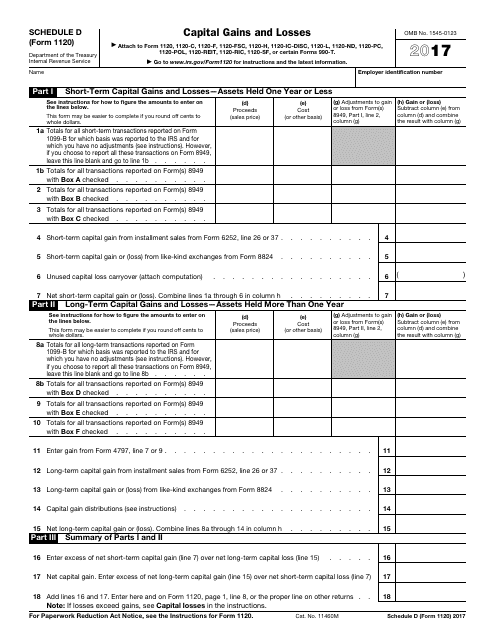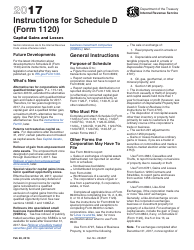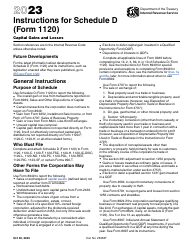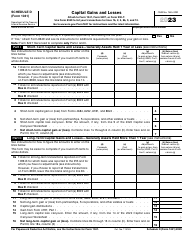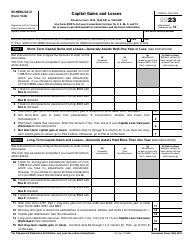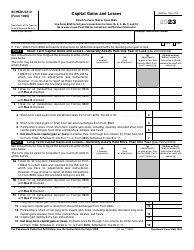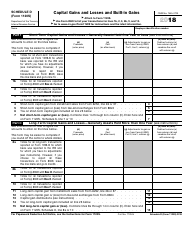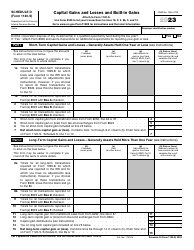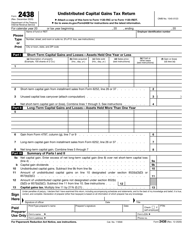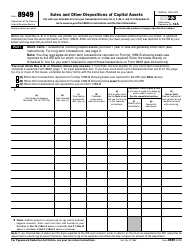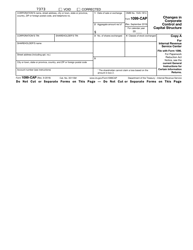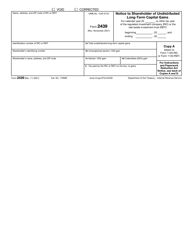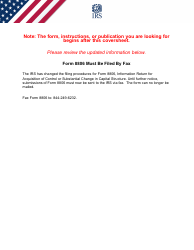This version of the form is not currently in use and is provided for reference only. Download this version of
IRS Form 1120 Schedule D
for the current year.
IRS Form 1120 Schedule D Capital Gains and Losses
What Is IRS Form 1120 Schedule D?
This is a tax form that was released by the Internal Revenue Service (IRS) - a subdivision of the U.S. Department of the Treasury on January 1, 2017. Check the official IRS-issued instructions before completing and submitting the form.
FAQ
Q: What is IRS Form 1120 Schedule D?
A: IRS Form 1120 Schedule D is a form used by corporations to report capital gains and losses.
Q: What are capital gains and losses?
A: Capital gains are profits from the sale of assets such as stocks or real estate. Capital losses occur when the sale of an asset results in a loss.
Q: What is the purpose of reporting capital gains and losses on Form 1120 Schedule D?
A: The purpose of reporting capital gains and losses on Form 1120 Schedule D is to calculate the corporation's taxable income.
Q: What information is required on Form 1120 Schedule D?
A: Form 1120 Schedule D requires the corporation to provide details of each transaction involving capital assets, including the purchase and sale dates, cost basis, and proceeds.
Q: Are there any special rules or regulations for reporting capital gains and losses?
A: Yes, there are specific rules and regulations that govern the reporting of capital gains and losses. It is important to consult the IRS instructions for Form 1120 Schedule D to ensure compliance.
Q: Is Form 1120 Schedule D the only form for reporting capital gains and losses?
A: No, there are other forms available to report capital gains and losses depending on the type of taxpayer. Individuals may use Form 1040 Schedule D, while partnerships may use Form 1065 Schedule D.
Q: When is the deadline to file Form 1120 Schedule D?
A: The deadline to file Form 1120 Schedule D is usually the same as the deadline for filing the corporation's tax return, which is typically March 15th for calendar year taxpayers.
Q: What are the consequences of not reporting capital gains and losses on Form 1120 Schedule D?
A: Failure to report capital gains and losses on Form 1120 Schedule D can result in penalties and interest charges from the IRS.
Q: Can I amend Form 1120 Schedule D if I make a mistake?
A: Yes, you can amend Form 1120 Schedule D if you make a mistake. You can file an amended return using Form 1120X.
Form Details:
- A 1-page form available for download in PDF;
- This form cannot be used to file taxes for the current year. Choose a more recent version to file for the current tax year;
- Editable, printable, and free;
- Fill out the form in our online filing application.
Download a fillable version of IRS Form 1120 Schedule D through the link below or browse more documents in our library of IRS Forms.
